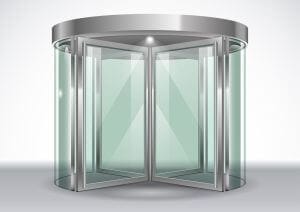
2 Way Door Decision Making
a 2 way door decision is the most common and easiest to make
Whenever you see a successful business,
someone once made a courageous decision.
Peter F Drucker
Peter Ferdinand Drucker was an Austrian-American management consultant, educator, and author, whose writings contributed to the philosophical and practical foundations of the modern business corporation
All too often we tend to want all of our decisions to be very good if not perfect. This focus on perfection drives us to spend much too long in most decision making processes. In fact, most decisions can be made with just a moderate amount of knowledge.
Decision-making is a critical part of any business (as well as our lives). The ability to make quick, informed decisions can mean the difference between success and failure. And in business and in life quick decision making is not only helpful, but critical to keep us from getting bogged down in the minutia.
But not all decisions are created equal. Some decisions are more important than others, and require more thought and consideration. These are called "one-way door" decisions. Those that are less important, are "two-way door" decisions.
One Way Door Decision vs 2 Way Door Decision
A one way door decision is one that can have a significant impact on your business. Once you make a one-way door decision, you're stuck with it and must deal with the consequences, both positive and negative. Because of this, you want to be as accurate as possible when making one-way door decisions. This can often mean that decision-making takes longer. Not all decisions are one-way doors, however.
Many decisions are "two-way door" decisions, which are much easier to revert back (go through the door again) and try again. These decisions can be made quickly, with less accuracy. Most decisions are two-way door decisions. Knowing which type of decision you're dealing with is critical to making the best choice for your business.
The 2 Way Door Decision
Most of the time, we make decisions without giving them too much thought. We choose what to wear based on what's clean and what goes well together. We decide what to eat based on what sounds good in the moment. But sometimes, we have to make decisions that are a little more important.
These are the decisions that fall into two categories: one way door decisions and two way door decisions.
One way door decisions are those that can be highly impactful. Once you have made that decision, you are stuck with it and must deal with the consequences, both positive and negative. For one way decisions, you want to have a high degree of accuracy, so that decision may take longer to make.
Two way door decisions can be made with much less accuracy, as they are easy to revert back (go back through the door) and try again. These decisions can be made quickly.
Most decisions are a 2 way door decision. We decide to buy a new car based on how it looks and how it drives. If we don't like it, we can return it and get our money back. We decide to move to a new city based on how we like the feel of the place. If we don't like it, we can always move back.
Decision making in business, just like the personal ones above, are mostly two way doors. Though, the key to making good decisions, then, is to understand which type of decision you are making. One way door decisions require careful thought and consideration. Two way door decisions can be made more quickly, with less thought.
Knowing which type of decision you are making will help you make the best decision for your particular situation.

2 way door decision making
Though this is a good analogy, one way door decision or two way door decision. They are not black and white but a range. Those easiest and fastest decisions can be made with very little information. And the repercussions of a bad decision are minimal.
While the most extreme one way doors are highly impactful if the decision is wrong.
Once you have determined that this is an acceptable 2 way door decision, then lets dive into this a bit more.
Impact of a 2 Way Door Decision
The one key thing that differentiates decision making in your personal life from your business life is culture. Some businesses unfortunately want to minimize risk and tend to punish mistakes. This culture tends to drive longer decision making or even the lack of decision making. I spent a handful of years in a business like this. Even the most basic decisions in this fortune 500 business were pushed far up the chain because of the culture of punishing risk. Punishing mistakes or errors. Decision making always had to be done correctly.
The most successful businesses view mistakes and risk as a part of business -- when they are done correctly. With the right thought process.
Assuming you work at a business that tolerates thoughtful risk taking ......
Create a culture amongst your team of risk taking is good -- when done the right way. The speed in business is paramount. Make a decision and move on.
Taking Too Long to Make a 2 Way Door Decision
I was one of three people building a new business from the ground up. We had substantial funding. Speed was important. Speed to market was paramount.
I needed to buy some parts for our product to allow it to go live and operate -- the decision was should I spend $50k for each customer for a better product that would last longer or $30k that would be more difficult to use. <<this was very clearly a 2 way door decision>> but I spent a few weeks looking at different options. The total cost in equipment I would spend would be a few hundred thousand $$. And it was alot of money to me. Fortunately my boss pulled my head up and pushed me to make a decision. I then moved forward quickly.
The time I spend making that decision pushed us back from go live. Fortunately it didn't impact our ability to succeed.
Bottom Line: 2 Way Door Decision
Don't get bogged down in 80% of your decisions. Make them fast. And run back through the door if they don't work out -- to try again. And, ensure your culture supports the thoughtful risk taking approach of a 2 way door decision.
It's not about making the right choice.
It's about making a choice and making it right.
J.R. Rim
Author








